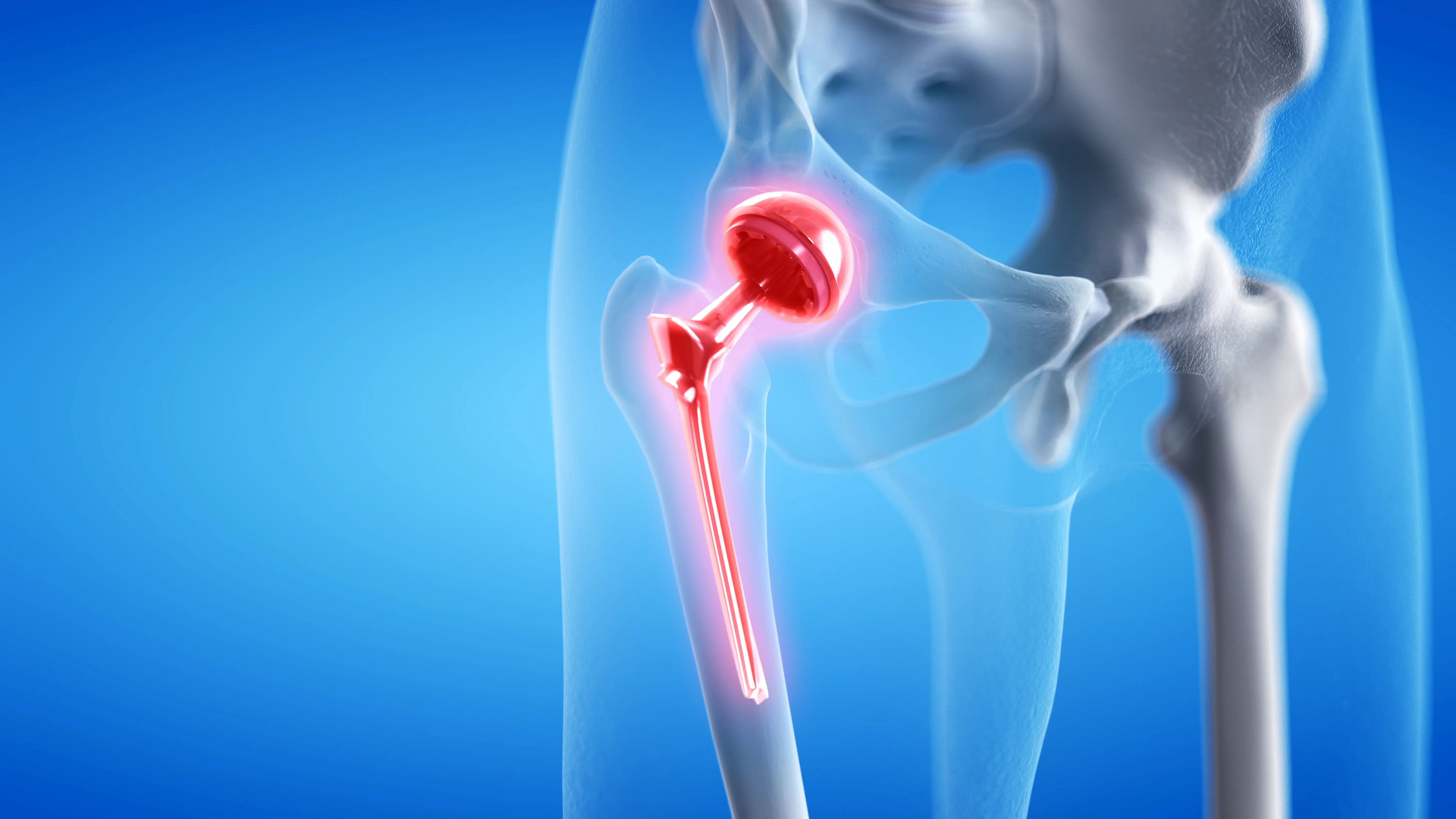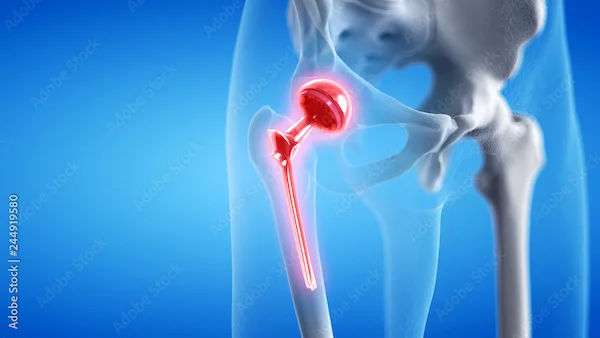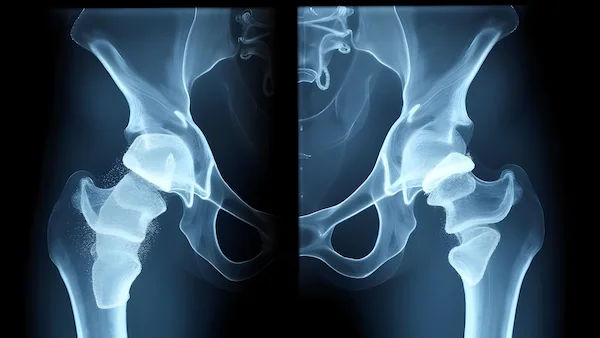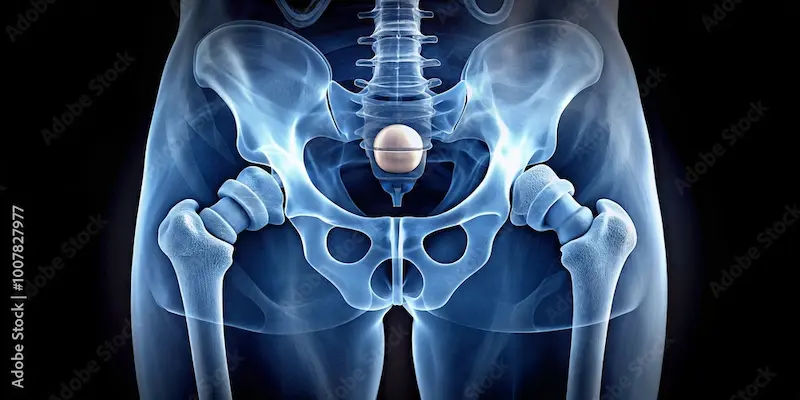Is Knee Pain Normal After Hip Replacement Surgery?
Experiencing knee pain after hip replacement surgery? Learn why it happens, how long it lasts, when to worry, and effective ways to manage it during recovery.

Written by Dr. Dhankecha Mayank Dineshbhai
Reviewed by Dr. J T Hema Pratima MBBS, Fellowship in Diabetes Mellitus
Last updated on 13th Jan, 2026

Introduction
Hip replacement surgery is a common procedure that helps people regain mobility and reduce pain caused by arthritis, injury, or other hip-related conditions. While the focus is on the hip joint, some patients experience knee pain after the surgery. If you're going through this, you might wonder—is knee pain normal after hip replacement surgery?
The short answer is—yes, it can be normal, but it’s important to understand why it happens and when you should seek medical advice.
Why Does Knee Pain Occur After Hip Replacement?
Several factors can contribute to knee pain after hip replacement surgery:
1. Changes in Gait (Walking Pattern)
Before surgery, you may have adjusted your walking style to compensate for hip pain. After the hip is replaced, your body needs time to readjust to a more natural gait. This shift can put temporary stress on the knee, leading to discomfort.
2. Swelling or Inflammation
Surgery causes inflammation in the surrounding tissues, which can sometimes extend to the knee. Swelling in the hip area may also affect nearby nerves, causing referred pain in the knee.
3. Muscle Weakness or Imbalance
Hip surgery can weaken muscles in the leg, especially if you were less active before the procedure. Weak muscles may struggle to support the knee properly, leading to strain.
4. Nerve Irritation
During surgery, nearby nerves may get stretched or irritated, causing temporary pain that radiates to the knee.
5. Pre-existing Knee Problems
If you already had knee arthritis or other knee conditions, the stress of recovery and altered movement patterns might aggravate them.
Consult Top Specialists for Personalised Care
How Long Does Knee Pain Last After Hip Replacement?
In most cases, knee pain improves within a few weeks to a few months as your body adjusts. However, if the pain persists beyond three months or worsens, it’s best to consult your doctor.
When Should You Be Concerned?
While some knee pain is normal, certain signs may indicate a more serious issue. Contact your doctor if you experience:
Severe or worsening pain
Swelling, redness, or warmth in the knee
Difficulty bearing weight on the leg
Numbness or tingling that doesn’t go away
Tips to Manage Knee Pain After Hip Replacement
Here are some effective ways to manage knee discomfort during your recovery:
1. Follow Physical Therapy Guidelines
Your physical therapist will guide you through exercises to strengthen your hip and knee muscles. Sticking to these exercises helps restore balance and reduces knee strain.
2. Use Ice and Elevation
Applying ice packs to the knee for 15-20 minutes can reduce swelling and pain. Elevating your leg when resting also helps with circulation.
3. Gradual Increase in Activity
Avoid sudden, high-impact movements. Start with short walks and slowly increase distance as your strength improves.
4. Wear Supportive Shoes
Good footwear provides stability and reduces stress on the knee. Avoid high heels or unsupportive slippers.
5. Maintain a Healthy Weight
Excess weight puts extra pressure on your knees. Eating a balanced diet and staying active, as recommended by your doctor, can help.
6. Over-the-Counter Pain Relief
If approved by your doctor, medications like acetaminophen or ibuprofen can help manage pain.
When to Consider Further Evaluation
If knee pain persists despite these measures, your doctor may recommend:
X-rays or MRI to check for knee joint issues.
Adjustments in physical therapy to target knee strengthening.
Consultation with an orthopaedic specialist if an underlying knee condition is suspected.
Final Thoughts
Knee pain after hip replacement surgery is common but usually temporary. With proper care, most people see improvement within weeks. However, if pain is severe or long-lasting, don’t hesitate to seek medical advice.
If you're experiencing persistent knee pain after hip surgery, Apollo 24|7 can help. You can consult an orthopaedic specialist online or schedule a follow-up test to ensure your recovery stays on track.
Stay patient, follow your rehab plan, and give your body time to heal. You’ve taken a big step toward better mobility—soon, both your hip and knee will feel stronger!
Consult Top Orthopaedicians
Consult Top Specialists for Personalised Care

Dr. Anil Pradeep Jadhav
Orthopaedician
23 Years • MBBS MS (Ortho)
Nashik
Apollo Hospitals Nashik, Nashik
(25+ Patients)

Dr. Suraj Prakash
Orthopaedician
5 Years • MBBS, MS (Ortho)
Bengaluru
Apollo Clinic, Indiranagar, Bengaluru

Dr. Rupam Chowdhury
Orthopaedician
10 Years • MBBS, DNB (Ortho.)
Kolkata
MCR SUPER SPECIALITY POLY CLINIC & PATHOLOGY, Kolkata

Dr. Padam Singh Gautam
General Physician/ Internal Medicine Specialist
43 Years • M.B.B.S (WARDHA M. S.), F.A.G.E. (MANIPAL), F.A.I.M.S. (Pb.), M.A.I.M.S. (Pb.), M.R.S.H. (LONDON)
Noida
Dr Padam Singh Gautam Fracture Clinic, Noida
(250+ Patients)

Dr. Susheel B
Orthopaedician
13 Years • MBBS, MS, Ortho Fellowship in Trauma ( Germany) Fellowship in Arthroscopy and Arthroplasty ( Switzerland)
Bengaluru
Apollo Medical Center, Marathahalli, Bengaluru
Consult Top Orthopaedicians

Dr. Anil Pradeep Jadhav
Orthopaedician
23 Years • MBBS MS (Ortho)
Nashik
Apollo Hospitals Nashik, Nashik
(25+ Patients)

Dr. Suraj Prakash
Orthopaedician
5 Years • MBBS, MS (Ortho)
Bengaluru
Apollo Clinic, Indiranagar, Bengaluru

Dr. Rupam Chowdhury
Orthopaedician
10 Years • MBBS, DNB (Ortho.)
Kolkata
MCR SUPER SPECIALITY POLY CLINIC & PATHOLOGY, Kolkata

Dr. Padam Singh Gautam
General Physician/ Internal Medicine Specialist
43 Years • M.B.B.S (WARDHA M. S.), F.A.G.E. (MANIPAL), F.A.I.M.S. (Pb.), M.A.I.M.S. (Pb.), M.R.S.H. (LONDON)
Noida
Dr Padam Singh Gautam Fracture Clinic, Noida
(250+ Patients)

Dr. Susheel B
Orthopaedician
13 Years • MBBS, MS, Ortho Fellowship in Trauma ( Germany) Fellowship in Arthroscopy and Arthroplasty ( Switzerland)
Bengaluru
Apollo Medical Center, Marathahalli, Bengaluru



.webp)
